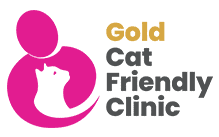Lungworm has been a common problem in areas of southern England and south Wales for years, but the number of instances where it is diagnosed in further north and Scotland is on the rise.
What is lungworm?
Lungworm (Angiostrongylus Vasorum) is a parasitic worm which affects dogs. The parasite can be carried by slugs/snails and can often cause a host of potentially serious problems if a dog is infected.
What causes lungworm?
Lungworm can potentially be carried by slugs and snails. Your dog may then accidentally, or purposefully, eat these slug or snails when they are sniffing around outside. They may also have contact with slug/snail slime trail in outdoor food and water bowls or on toys that are left around outside. It is eating or ingesting too much of the slime trail of slugs or snails that carry the lungworm parasite that causes the infection.
Lungworm cannot be passed dog to dog but it can be spread through dog faeces. An infected dog will pass larvae in their faeces which can then infect more slugs and snails with the parasite thus increasing the risk of your dog eating an infected snail or slug. This can lead to lungworm spreading rapidly within dog communities.
Symptoms of lungworm
- Coughing
- Difficulty Breathing
- Lethargy (not interested in exercise)
- Bleeding longer than normal
- Abnormal blood clotting
- Unexplained weight loss
- General sickness
- Stomach and back pain
- Poor appetite
- Vomiting
- Diarrhoea
What should I do if my dog has lungworm?
The signs listed above are also common with other conditions so it can be difficult to know if your dog has lungworm from these symptoms alone.
Lungworm can cause haemorrhages in the lungs, liver, intestines, eyes and spinal cord but also pretty much anywhere in the body. If left untreated, it can be fatal in severe cases.
If your dog starts to show any of these signs, call us immediately.
Treatment
It is always best to catch lungworm early. This way, treatment can be fairly straightforward and involves a spot-on treatment.
However, if symptoms are advanced or the level of infection is severe, it can be more difficult and there is a higher chance of permanent damage.
Prevention
It can be tricky to prevent lungworm as your dog may eat slugs or snails without you even realising.
We have brilliant worming treatments that can help to prevent lungworm. It is important that your pets are up to date to prevent lungworm and other types worms (roundworms, tapeworms, hookworms and whipworms) too.
We would also advise that you try and keep your dog away from any slugs or snails that you may spot in your garden or in the park. Always let us know as soon as possible if your dog becomes unwell.
Tips for Preventing Lungworm and the spread of Lungworm:
1. Stop your dog from eating slugs/snail if you can
2. Don’t leave dog toys in the garden overnight
3. Regularly clean water bowls that are left outside and make sure water is fresh
4. Pick up your dog’s faeces (this will help to limit the spread of lungworm)
5. Speak to us about regular worming treatments to help prevent lungworm and other types of worms
If you suspect your pet has lungworm, please contact us immediately.










